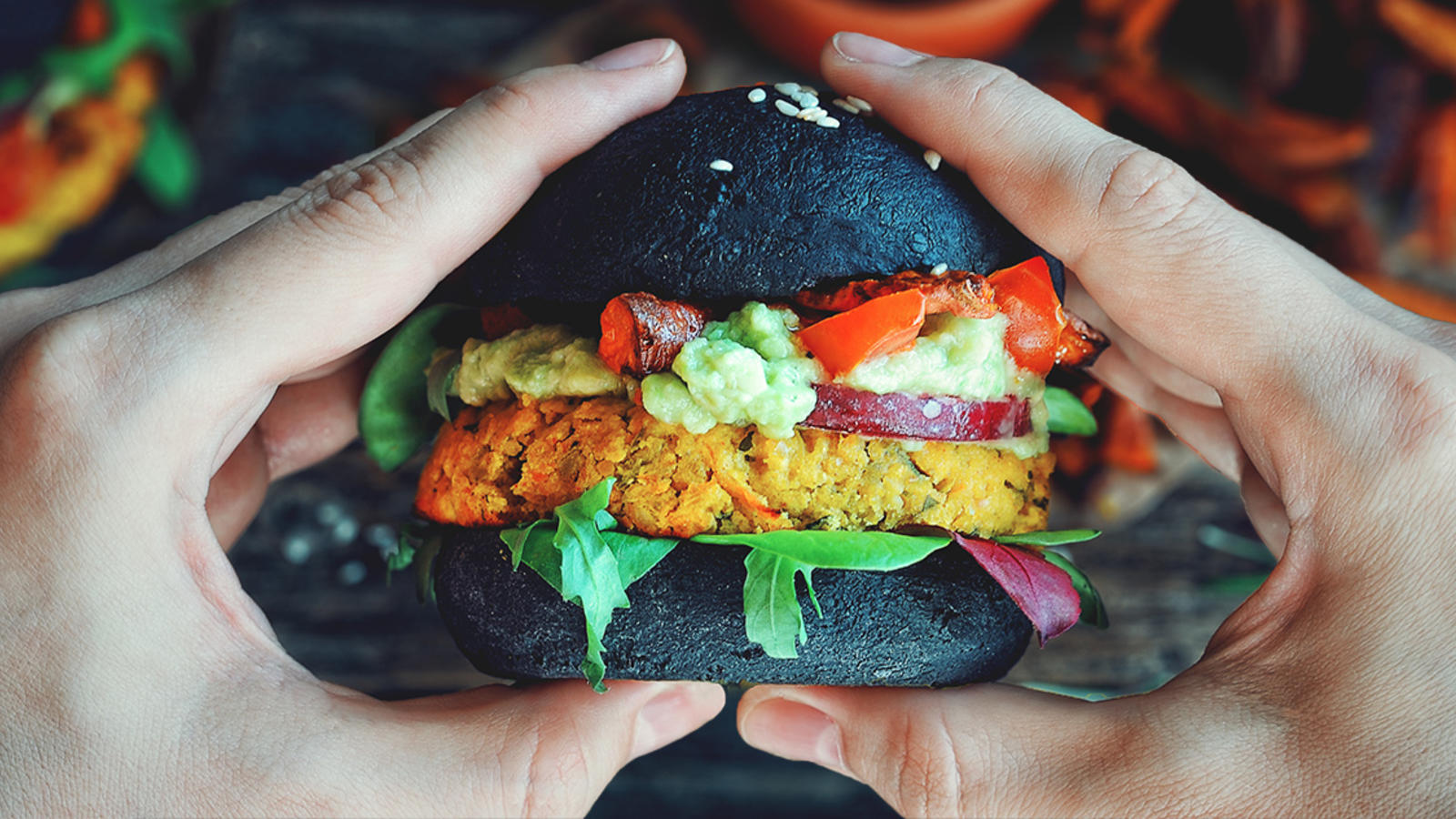
A Burger By Another Name
Who Gets To Decide What We Call A Patty-Shaped Thing Between Buns?
By Jennifer Latson
Who gets to decide what we call a patty-shaped thing between buns?
If it looks like a burger, smells like a burger, and tastes like a burger, is it safe to call it a burger? Or must a patty be made of meat — and not meatless meat — to merit the label?
The linguistics of mealtime have gotten complicated lately, thanks in part to the rise of plant-based alternatives to the foods we normally associate with animals. Dunkin’ now sells a Beyond Meat sausage breakfast sandwich; Burger King is bringing the plant-based Impossible Whopper to the masses.
Stocks are soaring for the two leading non-meat makers, Beyond Meat and Impossible Foods — and analysts predict the market for so-called alternative proteins could climb as high as $140 billion by 2029. On menus and packaging, they’re being described in meaty terms: as burgers, sausage, bacon and the like. (In a fishy twist, Tyson Foods, the meat-industry behemoth, recently announced its plans to debut plant-based shrimp early next year.)
But ranchers have a beef. Last year, the U.S. Cattlemen’s Association petitioned the federal government to prohibit “products not derived directly from animals raised and slaughtered” from being marketed as meat. The trade association invoked the federal truth-in-advertising law, arguing that “current labeling practices may cause consumer confusion.”
Is unwitting vegetarianism really a problem? Probably not, analysts say. Few, if any, consumers who buy plant-based meat do so accidentally, even if the label says “burger,” observes Jaeyeon Chung, a marketing professor at Rice University’s Jones Graduate School of Business.
“They’re doing so out of a conscious decision not to consume real meat, and they are putting effort into searching for an alternative,” Chung says. “This isn’t a traditional marketing scam where counterfeiters try to deceive consumers by selling products similar to what people really want to purchase.” An Impossible Burger isn’t the culinary equivalent of a fake Rolex, she explains: its purpose isn’t to confuse people into buying a poor-quality imitation of the original, but to deliberately choose a new product that meets different needs.
Plant-Based Pushback
The U.S. Department of Agriculture hasn’t yet ruled on the ranchers’ petition. In the meantime, however, several states — including Arkansas, Missouri and Mississippi — have passed their own laws restricting the terms used to describe plant-based products.
The companies that make those products are pushing back. In July, Tofurky joined forces with the American Civil Liberties Union and other groups to file a lawsuit challenging the Arkansas law, which makes it illegal to call veggie burgers “burgers” or tofu dogs “dogs.”
Tofurky and the ACLU argue that the law — which also takes issue with cauliflower “rice” and almond “milk” — violates the First Amendment’s protection of free speech. “It's absurdly patronizing that the government of Arkansas is asserting that the people of Arkansas can't tell a ‘veggie burger’ from a ‘hamburger,’ or a ‘tofu dog’ from a ‘hot dog,’” said ACLU attorney Brian Hauss. “The government should focus on genuine consumer protection problems instead of playing word games to benefit special interests at the First Amendment’s expense.”
The beef industry association is not the first food group to wage a war of words against its competitors. In Texas, for example, pickle purveyors made the case that the word “pickle” should apply only to cucumbers (and not, say, okra or peppers). Persuaded by their lobbying efforts, Texas lawmakers codified that definition in 2014, making it illegal for small-time farmers to sell a jar of brined beets. The law was rewritten this year, freeing home picklers from the tyranny of the cucumber.
In fact, the “truth in advertising” argument has been trotted out throughout the history of food marketing whenever an upstart veers too close to an established product’s market share. In 1881, Wisconsin lawmakers passed a law requiring margarine to be clearly labeled as a non-butter product, with the stated goal of dispelling consumer confusion. In 1895, it passed another law prohibiting margarine from being dyed a buttery yellow color, again to avoid “misleading customers” in a state dominated by dairy interests.
Mainstream Appeal
But veggie burgers have been going by the “burger” label for a while now. So why the sudden drive to beef up burger labeling laws? Because while meatless meat was once an acquired taste, largely relegated to the vegan fringe, it’s now going mainstream — and potentially poses a real threat to the real thing.
When it comes to the damage plant-based alternatives can inflict, some see the dairy industry as a cautionary tale. Dairy lobbyists first petitioned the FDA in 2010 to ban words like “milk” and “cheese” from products that don’t trace their origins to the inside of a barn. Since then, the industry’s outlook has soured, with decreasing demand and lower milk prices — largely unrelated to competition from plant-based milks. Lately, however, lobbyists have renewed their push to legislate labeling. But it’ll be tough to make a convincing case that consumers might be misled into thinking almond milk or soy milk comes from a cow, as Bruce Friedrich, of the nonprofit Good Food Institute, told The New Republic.
“There is no consumer confusion, but requiring any sort of change would certainly confuse consumers, who have been buying almond milk and soy milk for decades,” Friedrich said.
Chung agrees. But she thinks that may be where dairyless dairy and meatless meat diverge.
“I don’t think almond milk was such a big deal because it clearly tastes very different from real milk, and people who love milk would not easily switch,” Chung says. “The latest plant-based meat, however, is the outcome of many years of many companies’ efforts to mimic the taste of meat, and they’ve finally succeeded. Now, since it really tastes like meat, the ranchers seem to feel that they are under threat.”
Even if meatless meat does pose a genuine financial threat to ranchers, of course, it doesn’t necessarily follow that lawmakers should regulate the language used to describe it. That would be unfair to the makers of plant-based products, who have the right to market their products effectively, Chung says.
“Its current labeling, as a plant-based meat, will likely draw both vegans and current meat eaters who are more health-conscious,” she says. The alternative — labeling it as a plant product with, say, “meaty qualities” — would be less appealing all around.
After all, without the familiar shorthand of terms like “meat” and “butter,” marketers are forced to cobble together ungainly descriptors like “texturized vegetable protein” and “cultured nut product.” Word salads like these will entice only the most diehard of health-food fanatics.
This story originally appeared in the Houston Chronicle’s Gray Matters.


